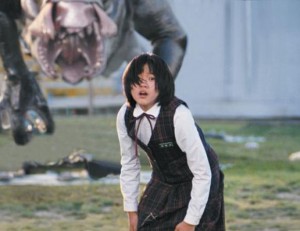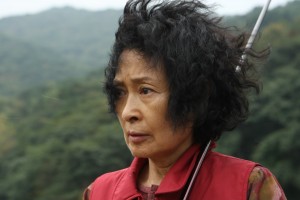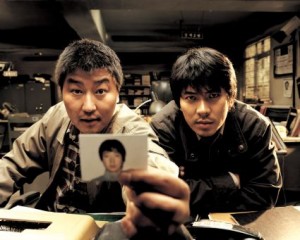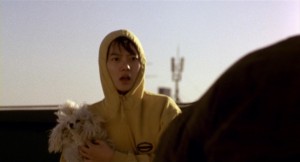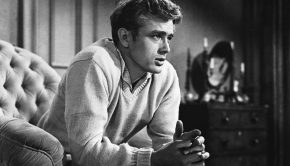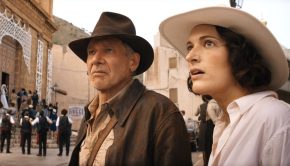Director Profile: South Korea’s Bong Joon-Ho
Dave Scaddan takes a look at the high points of the career of one the star director’s of South Korea’s film industry renaissance; Bong Joon-Ho.
The South Korean film industry has been producing some interesting titles in the last decade and a half, some of which have been given the Hollywood stamp of remake recognition, and it would be a real shame if writer/director Bong Joon-Ho went unnoticed by western film fans throughout all the attention. Korean cinema has been in the midst of a surge for much of his career, responding to a recent law ensuring that a certain percentage of movies shown in Korean theatres must be homegrown. Much like the broadcast laws affecting Canadian content, the law gives exposure to good and bad art, as long as it’s native, by providing an almost-guaranteed marketplace. This means that it’s easier to get funding for a film in Korea than it used to be, and that if one knows where to look, there’s some great work to be found. To the outsider, Korean cinema provides a new cultural lens with unfamiliar character types, new ways of thinking about storytelling, and films that feel more organically made than many modern, Western counterparts. When looking for a door-opener to this new world of movies, film buffs could do a lot worse than to begin with Bong Joon-Ho.
This filmmaker first caught the eye of many moviegoers in 2006, bringing us a film called The Host, which, although it featured a giant reptile attacking the city of Seoul, did not fit comfortably into the monster movie genre — it was sicker, slicker, and funnier than most, while still providing some terrifying thrills. And even though the focal point of the film is the giant reptile, the computer-imaged monster does not even come close to taking over the picture. Instead, Bong keeps our focus mostly on one family and how their lives are affected by the terror the monster unleashes randomly on the helpless metropolis. Actor Song Kang-Ho, one of Bong’s favourite vessels, plays a loveable misfit, an elder brother in a Korean city who is constantly outshone by his younger sister and has no ambition to do anything but work in his father’s snack shack. His character is so at odds with the modern mindset of his surroundings that The Host quickly becomes much more than just a monster movie. Ideas about environmental corruption, the American military, and social protest weave their way through The Host without ever becoming preachy or detracting from the thrills. Through it all, Song’s well-intended-but-bumbling portrayals reveal Bong Joon-Ho’s penchant for telling stories through the eyes of the marginalized, the one trait that ties all of his films together.
Life on the fringes of urban Korea is most starkly portrayed in Bong Joon-Ho’s unsettling film, Mother, released in 2009, where the single mother of a developmentally disabled son must work in absolute isolation to exonerate her boy from charges of murder. The lead role is played hauntingly by Kim Hye-Ja, an actress in her late sixties giving a once-in-a-lifetime performance that serves as a reminder of just how few great roles there are for women in modern film, especially those beyond their mid-thirties. As in many of Bong’s films, the isolation and powerlessness of the main character draws us into feelings of desperation and a need to grip tightly to whatever small part of our world we can control. Bong’s script and direction show a rare male filmmaker’s compassion for the plight of the female stuck in patriarchy, and Mother accomplishes the unusual feat of presenting us with a brand of heroism that is truly its own. It is refreshing to watch a film that betrays no obvious influence, that reminds us of nothing, that gives us multiple characters we’ve never seen the likes of before. Mother does nothing to win us over except remind us of our frailty and our reliance on unconditional love, and by the end, it’s impossible to walk away unmoved. The script, like much of Bong’s work, refuses to make choices to ease the storytelling, instead taking paths that make the story harder to tell. Mother is a murder mystery where the evidence makes the verdict cloudier instead of clearer, where the hero is loving and brave, but irrational, and where the mentally challenged character is played by the most handsome actor in the cast. It’s as though to tell this story of protection, Bong Joon-Ho refused to protect himself from challenges or presumption.
Though his movies tend to have little in common with each other, jumping genre, mood, and style like candy-fuelled kids on a Dance Dance Revolution mat, Mother does recall the story of Bong’s 2003 film, Memories of Murder. In this police story, we are following a case in rural Korea, with a detective that is as unprincipled and overwhelmed as he is driven. But again, Bong won’t allow this character to be pigeonholed as a bumbler or a bloodhound — instead he is both, always, as most of us probably are when we are obsessed. Unlike many films and series that have recently tried to reboot the Twin Peaks premise of a pretty and popular girl turning up dead with no one and everyone as a suspect, Memories of Murder doesn’t drag us into the secret past life of the victim. Instead, it draws us into the futility of the chase, defying cop-versus-crime conventions at every turn, branding us with an existential malaise that even Dale Cooper couldn’t conjure. The setting could be in the countryside of almost any nation, and the story nails the identity of the small-town cop wrapped up in a big-city crime as films like One False Move and Fargo have done before. And as he would do again later in Mother, Bong Joon-Ho gives us scenes where he threatens the audience’s ability to jive with the ethics of the protagonist, weaving unseemly characteristics into our typical notions of heroism.
The local-boy detective — also played by Song Kang-Ho — is an intricately evolved character for a detective-type in a two-hour drama. He goes from the dumb egoist planting and coercing evidence to frame the most defenseless and unlikely of suspects, to desperately needing to find the real killer so his town can rest. Bong takes the tough road again in his storytelling, giving us every reason to dislike this detective in the film’s first hour, then gradually coaxing us to empathize with him in the second. Memories of Murder doesn’t need to be told this way to be a good crime film, but Bong Joon-Ho wants it to be different, and he gives his leading man plenty to work with to make sure it will be.
Memories of Murder is also a good example of the kinds of visual and physical humour that Bong can interject into any film, no matter the theme. Charming, witty scenes with no dialogue often give his actors chances to play with the moment, Chaplinesque, like when Song’s detective character becomes convinced that his killer must be a man with no pubic hair, because they never find any at the crime scenes. He stakes himself out in the local sauna club, trying and failing to be casual as he does his random inspections from the hot tub. The scene only lasts a few moments, but it gives Song a chance to shape the desperation of his character while plying his comedic side. It’s a touch only a cleverly nuanced director could add to a story, and one that highlights this filmmaker’s playful wit.
To see the full scope of Bong Joon-Ho’s sense of humour, one needs to look back to his first feature, Barking Dogs Never Bite, a film that is also a good example of how confusing the moods of Korean films can sometimes be to a Western audience. In Korean films like the original Old Boy, or Kim Ke-Duk’s 3-Iron, it is often hard for the North American viewer to tell whether certain moments are being played for dour or comic effect. Scenarios involving the corruption of public offices, the misogyny of the workplace and the everyday presence of corporal punishment are generally used as banners of villainy and injustice in Hollywood films, but many Korean directors use these inequities as casual, matter-of-fact realities that can sometimes be the source of levity. Barking Dogs Never Bite tells the story of a young intellectual driven to distraction by the yapping little dogs that populate his housing project. When he decides, very early in the film, to begin a mission of extermination, his cruelty to animals is treated very differently than it ever could be in Hollywood, and when his victims become a source of delicacy for other members of the housing community, the western mind can’t help but wonder how differently these moments might look to Bong’s native audiences.
Barking Dogs also gives us one of Bong’s most unlikable protagonists, a device unheard of in American comedy outside the realm of Bad Santa. The film’s dog-hating lead doesn’t just harm animals out of selfishness; he’s also cowardly and uxorious to a beyond-comic degree. But much like the young detective in Memories of Murder, the latter parts of the film bring hard-won redemption to this miscreant, largely due to his entanglements with a young, female vigilante played to perfection by Doona Bae, who has since become a somewhat familiar face to Hollywood thanks to her multitudinous roles in Cloud Atlas. Despite being a fairly small-scale neighbourhood comedy, Barking Dogs is an early sign in Bong Joon-Ho’s career that he could eventually become a director of tremendous vision and flexibility, able to squeeze meaning and feeling from the simplest of scenarios.
Then we have Bong Joon-Ho’s most recent and most stylistically ambitious project, Snowpiercer. This is the story, adapted from a graphic novel, of a high-speed train designed to crack through sheets of ice that cover its tracks. The story is set in a frozen future-Earth that has been over-cooled by attempts to reverse global warming. The train circuits the entire globe, running on an endless supply of fuel and housing hundreds of passengers. The catch is that those few hundred aboard are the only humans left alive on the planet and they can’t get off the train, ever. Bong Joon-Ho uses the train’s compartments as a class system that needs usurping, the privileged near the front, the great unwashed towards the back. As a rebellion surges from the caboose to the engine, we are moved through several different worlds, each car more idyllic and exclusive than the one behind it, almost like the indulgent antechambers of Prospero in The Masque of the Red Death. This gives Bong the chance to make several short films, one for each compartment, each with its own look, sound, cast and feel.
The movie is a fun, ambitious piece of political and social commentary that seems more interested in pointing out the way things are than how we should change them, much like the earlier apocalyptic disaster movie, The Host. It takes so many risks that some are bound to fail, but it also adds to Bong Joon-Ho’s reputation as an unpredictable force. Snowpiercer doesn’t have much in common with any of his other films, suggesting that he can adopt whatever style his current project needs and direct without ego or a sense of legacy. Snowpiercer also marks Bong’s first feature-length foray outside of his home country’s cultural borders, his first film in English, and his first use of American and British actors in his cast.
The jewel of Bong Joon-Ho’s short history of film, however, is in a Japanese trilogy from 2008 called simply, Tokyo! The film brings together three non-Japanese directors (including Michel Gondry and Leos Carax) who each tell a Tokyo-set story with the eyes of outsiders. Gondry’s bit tells a story about wanting to live for art without actually becoming an artist. Carax uses his third of the film to set loose his bizarre, French, cash-and-flower-eating Monsieur Merde onto the streets of Tokyo, as he would again later in Holy Motors with a different setting. Bong Joon-Ho closes the film with a half-hour gem called Shaking Tokyo, the story of a hikikomori.
Hikikomori is the title given in Japan to a growing number of recluses who, living off the savings of their parents, refuse to go outside or have any contact with other humans. Some sources estimate that there may currently be one million Japanese citizens under thirty who have adopted this lifestyle. Shaking Tokyo drops us into the world of a man who has survived in his absent father’s house without any human contact for over a decade. The set of the film on its own is a masterpiece, telling us everything we need to know about our recluse before his narration even begins with its decorative stacks of empty pizza boxes and toilet paper rolls.
In just thirty minutes, Bong Joon-Ho manages a remarkable transformation. He first romanticizes the agoraphobe, making his life seem serene and controlled, predictable to the point of perfection, a work of living art. He then shatters that romance with the whiff of an actual one with a young woman. The crush between cozy self-marginalization and the desire for human contact is present in every shot, every line, pressing on the psyche of anyone who’s ever hidden from the sound of a doorbell or screened a phone call. And despite the fractured, fringe-dwelling perspective of this short, it makes its subject seem achingly human and wry, letting Japanese actor Teruyuki Kagawa be the thespian and the clown. And the ending is brilliant, daringly allowing all the meaning and resolution of this thought-provoking piece to rest on the facial features of a single actress, Yu Aoi, who is up to the challenge of all the weight placed on this silent moment of her performance.
[All of Tokyo! can be seen here; Shaking Tokyo begins at the 1:16:00 mark – don’t forget the closed captioning.]
Shaking Tokyo is a great way to see, in a very short time, why Bong Joon-Ho merits our attention and why movie-lovers should not stop with The Host when scouring his IMDB page. His work in his ode to the hikikomori captures the same encumbering weight of life in the margins that all his films contain. There are no boring climbs to conventional success in these movies, no cheap pathways to character and plot development, no absolutes of right and wrong. There is beauty, even in shots of the stockpiling of garbage or of dead dogs being buried. There is a trust of the actor to grace the film with his or her own flavour and flair, making characters that are more likeable than they should be considering all that we see them do. Bong Joon-Ho has been making films in a culture that strongly shades its influence into his work, yet these films still emerge universal, able to articulate human truths and stories of intrigue that will be cogent in any culture.


